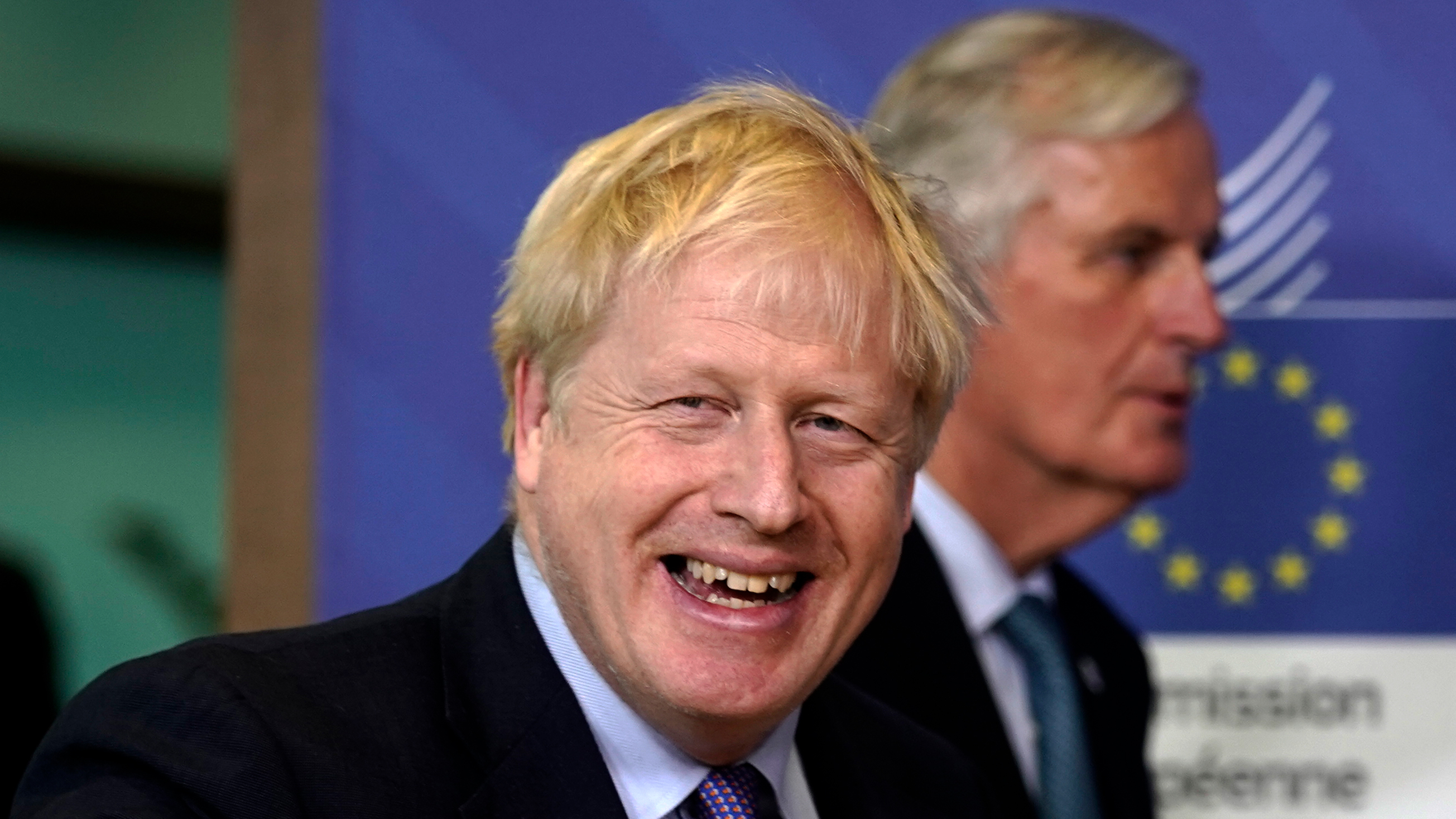The UK and EU have reached consensus on a Brexit deal, British Prime Minister Boris Johnson announced on Thursday ahead of a crucial meeting with European leaders in Brussels.
01:36

The agreement, reached after much deliberation, would require assent of both the UK and European parliaments.
Johnson now faces the Herculean task of convincing a skeptical House of Commons and his allies in Northern Ireland, especially the Democratic Unionist Party (DUP) which has refused to back the deal in its present form.
In a statement the DUP said: "Following confirmation from the Prime Minister that he believes he has secured a "great new deal" with the European Union, the Democratic Unionist Party will be unable to support these proposals in Parliament.
"We have been consistent that we will only ever consider supporting arrangements that are in Northern Ireland's long-term economic and constitutional interests and protect the integrity of the Union."

Britain's three-year bid to exit the European Union has been mired in acrimony and chaos. (Photo: AFP)
Britain's three-year bid to exit the European Union has been mired in acrimony and chaos. (Photo: AFP)
Labour Party leader Jeremy Corbyn also expressed his displeasure saying the deal "should be rejected" by the MPs since it was "even worse" than the one negotiated by former prime minister Theresa May.
European Commission President Jean-Claude Juncker came out in support of Johnson describing it as a "fair and balanced agreement".
Britain's three-year bid to exit the 28-nation bloc has been mired in acrimony with both parties failing to see eye-to-eye on a number of issues.
Here are the some of the key points of the deal that would shape future relations between the UK and EU.
Transition period: The agreement would allow for a transition period at least until the end of 2020 and possibly further during which the terms UK-EU trade would remain unchanged, even though the UK was no longer a member of the bloc. The UK would have to follow EU regulations, without the ability to make new rules and alter existing ones.
Citizens'rights: The deal would allow EU residents in the UK and Britons living in the EU to have the right to stay in their adopted country for five years and then gain permanent residency rights. British residents in the bloc can continue to get reciprocal healthcare. The EHIC card would form a part of future negotiations but will remain valid to cover travel during the transition period. Close family members will be allowed to join British citizens who are legal residents in the EU.
Budget: The UK agrees to meet the financial commitments it has already agreed with the EU, paying into the EU budget money due through 2020.
Trade, tariffs and finance: A balanced and wide-ranging economic partnership would be established which would include a Free Trade Agreement (FTA) without any tariffs or quotas. The FTA would ensure cross-sector cooperation, a level playing field and an environment of healthy competition. Both parties would respect each other's regulatory and decision-making rights. The UK would be free to enter into mutual trade deals with other countries such as the US or China.
Northern Ireland: Northern Ireland will legally be part of a customs zone including the rest of the UK and outside of the EU. The UK would be free to include the territory within the scope of any agreements it strikes with other countries. Northern Ireland will follow EU rules to eliminate the need for border checks between the North and Republic of Ireland.
The Northern Ireland assembly will be able to vote every four years on whether to keep the arrangement. The system could be extended by another eight years after another positive vote. In case the consent is withdrawn, a 24-month cooling off period would kick-in by which a solution to avoid a hard border should be found.